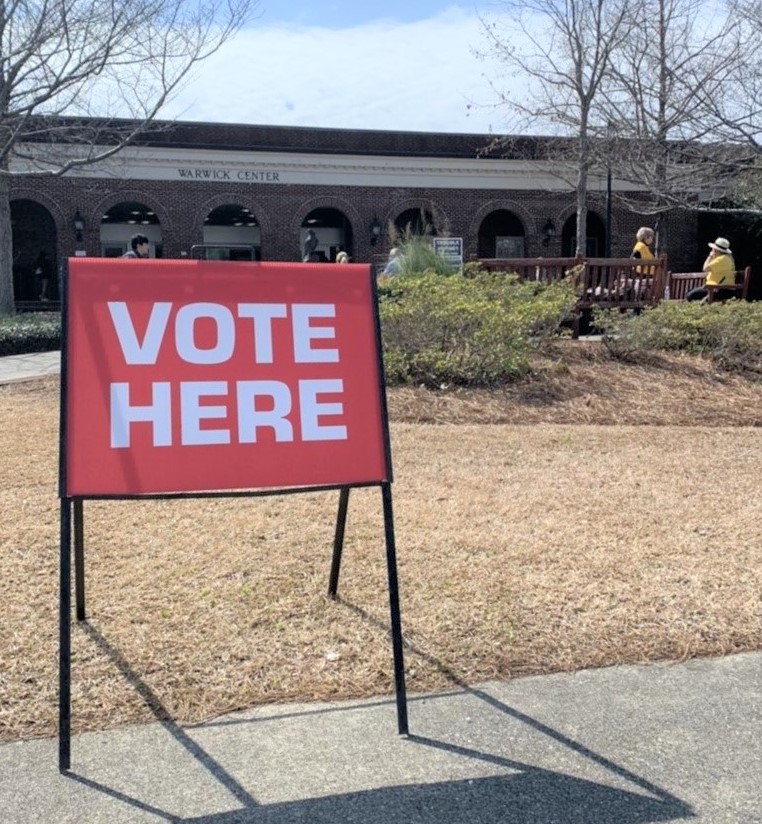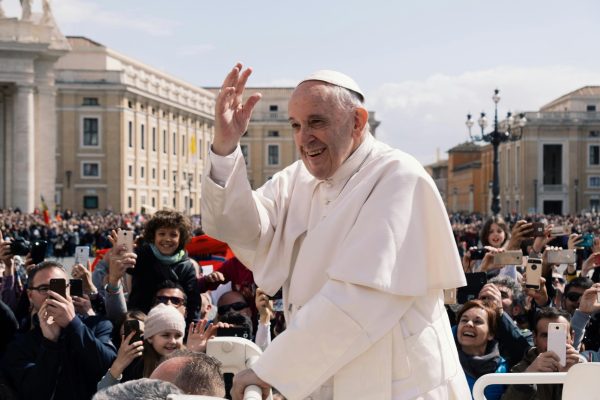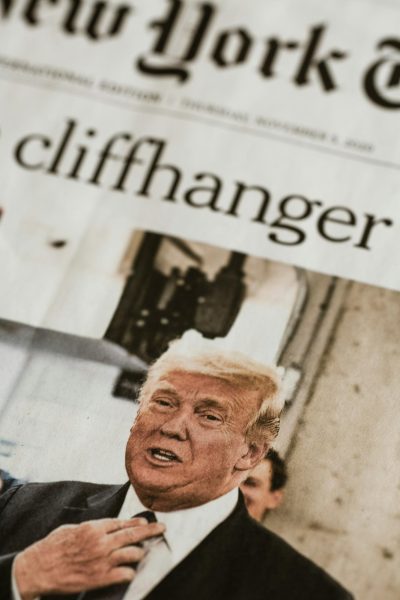Biden, Sanders clear front-runners after Super Tuesday primaries
UNCW students and community members alike were able to vote in the Super Tuesday primaries at the Warwick Center polling location on March 3, 2020.
Tuesday marked a crucial day in the race for presidential candidacy. “Super Tuesday” sees 14 states and the U.S. territory of American Samoa cast their votes for their preferred candidates for the Democratic presidential nomination. This single day accounts for a whopping 1,357 delegates, about a third of the total delegates available. Some of the day’s largest prizes are the delegates that will be awarded by voters in the most populous states available, namely North Carolina, Texas, and the largest of all, California. These delegates could spell elation or defeat for president hopefuls and serve to give a clearer picture as to who will go toe-to-toe with Donald Trump come November.
The spoils of the night were shared between longtime Vermont Senator Bernie Sanders and former Vice President Joe Biden, who look to be the two most viable candidates going forward. Biden, who was able to close the gap on Sanders who looked to be pulling away after the Nevada Caucus, now finds himself in the front-runner position.
While Biden won 10 states and Sanders only four, neither of the candidates has been able to accrue a sizable lead of delegates, meaning this race is still very much open. Biden was able to secure many of the eastern states including North Carolina and gained a huge boost from a surprise win in Texas. It was Sanders who came away with the largest prize of the night in California, but this still was not enough to keep him ahead of Biden. Former mayor of New York City and one of the world’s wealthiest men, Mike Bloomberg, disappointed in his first appearance on the ballots this election cycle, winning a majority only in the territory of American Samoa. Bloomberg dropped out of the race the following Wednesday morning.
The race has taken an interesting turn in the days surrounding Super Tuesday, as the withdrawal of philanthropist Tom Steyer, South Bend, Indiana Mayor Pete Buttigieg, and Minnesota Senator Amy Klobuchar marked a sharp narrowing of the electoral field leading up to Tuesday’s ballot. Buttigieg and Klobuchar then went on to endorse Biden and were later joined by former Texas Representative Beto O’Rourke, who ended his campaign for the presidency back in November of 2019, in what some believe to be an attempt by the moderates of the Democratic Party to coalesce.
The day after Super Tuesday, Bloomberg then gave his endorsement to Biden, as well as the likely injection of funds into the Biden campaign from Bloomberg himself. This is believed to be a response to the growing popularity of the progressive side of the party consisting of Sanders and Massachusetts Senator Elizabeth Warren, who are often criticized by those saying that a progressive candidate would not be able to beat Donald Trump come November. The coalition’s numbers were then bolstered following Bloomberg’s withdrawal from the race following his poor Super Tuesday showing.
This new coalition was formed off the back of Biden’s crucial win in South Carolina, which breathed life back into his campaign after a disappointing start, bringing him within reach of Sanders, delegate-wise. Biden’s ability to secure vital endorsements such as those by Buttigieg, Klobuchar and O’Rourke played a large part in his Super Tuesday winnings, earning him momentum that will likely last for several months.
The next round of primaries are slated to begin Tuesday, March 10 in Idaho, Michigan, Mississippi, Missouri and Washington.













Joe • Mar 9, 2020 at 6:33 pm
Thanks Andrew, look forward to hearing from you in the coming months about the current events of our nation.